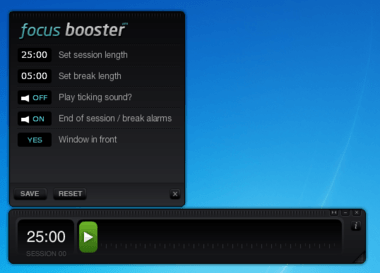Objective and subjective time
I’ve read quite a few books and essays on the psychological effects and reasons of procrastination. Something interesting that has stuck with me is in the book Procrastination by Jane B. Burka (not an affiliate link) having to do with the way that “procrastinators” perceive and interact with time. According to Burka there are two ways that we deal with and understand time: objectively and subjectively. Objective time is “measured by clock and calendar” and is predictable where as subjective time is measured by our own personal understanding and is outside of clock time. As you can see, if your personal subjective time isn’t lining up with the world’s objective time you can have some serious issues, especially since your boss, your professors, and your spouse tend to base everything off of objective time. I have this problem with objective time and after reading through Procrastination I decided to break myself of it by employing some different techniques when it came to my “time management skills” or lack thereof.
Track, track, track
You can track your time many different ways but some of the best apps that I have found for Android and iPhone are great when you are on the run and need to get a quick statistic to use for planning. There are a ton of options on both platforms but in the free category I would go with Eternity Time Lite and aTimeLogger for iPhone and Time Recording – Timesheet App and Track Task Time for Android. All of these offer the user the ability to track multiple activities, create their own categories, and gives them reports and statistics they can use to help understand just where there time goes. You can also track your time use on your PC or Mac with RescueTime. RescueTime basically tracks what applications you are spending your time with and can give you a realistic view of where your computer time is going.
Starting now and time blocking
One of the most elusive ways that procrastinators abuse time and do not sync their subjective time with objective time is underestimating how long a task will take to complete. I’ve been told my many former and current software project managers that when they ask a software developer how long it will take to get something done they usually multiply their answer by two or three to set realistic expectations. Many of us are confident (sometimes overconfident) and do not set realistic time constants on ourselves.
Time blocking, the idea of blocking out a certain amount of time on your calendar for a task or project, has been around forever and works well if you have a realistic view of how long something will take to complete. After starting your task or project, take out your favorite calendar app and start “blocking” out time in your schedule to complete the task. Usually, if I think something is going to take 2 hours to complete, I block out about 2.5 total hours. This gives me some starting and stopping leeway. I also suggest only blocking out 50 minutes at a time to prevent burning yourself out. It seems that 50 minutes of work and 10 minutes of rest/play when you are in a working period is ideal. When it comes to generic timers for PC or Mac I highly recommend FocusBooster. It’s an Adobe Air application that lends itself to the Pomodoro technique of task timing, but you can use it for setting your working time on a task or project. For calendaring, I have to admit that I solely use Google Calendar for all my calendaring needs as it is everywhere I go and I can sync it to just about any device I want to. That isn’t to say there aren’t a bunch of good calendaring options out there, it’s just that Google Calendar has met all of my needs thus far.
Conclusion
Having an understanding of how to sync your subjective time and the world’s objective time can save you a ton of pain in your personal and professional life. But, if you are anything like me you will need a some help along the way to understand where the objective time goes. Hopefully if you understand the difference between your “inner clock” and the real world, track how long it takes you to accomplish tasks, and think more realistically about how long it take to accomplish something and schedule accordingly, you can say goodbye to procrastinating your time away.
![]()
